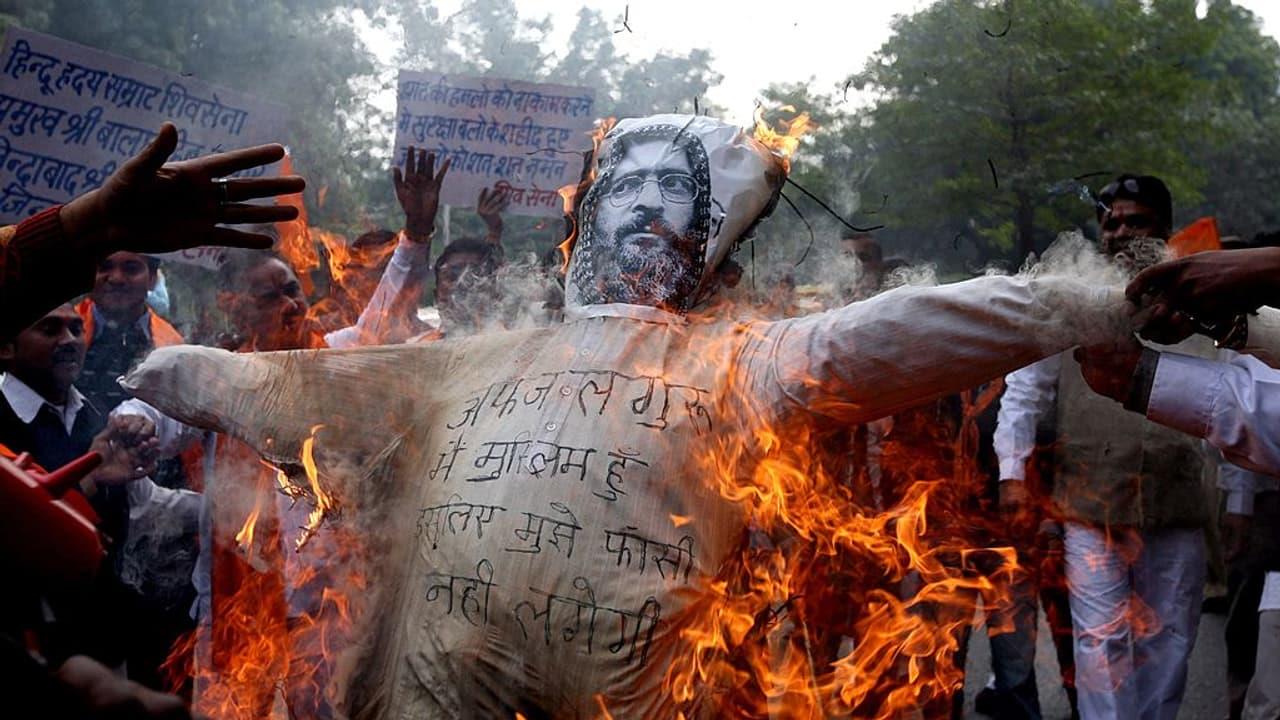'Afzal Guru's Tihar Grave Glorifies Terrorism': Delhi HC Dismisses Plea, Calls Claim Baseless
New Delhi: The Delhi High Court has dismissed a public interest litigation (PIL) seeking the relocation of graves belonging to executed terrorists Mohammad Maqbool Bhatt and Mohammad Afzal Guru from Tihar Central Jail premises. A two-judge bench led by Chief Justice DK Upadhyaya and Justice Tushar Rao Gedela asked the petitioner to refile it on proper grounds. The court emphasized the sensitivity of the matter from multiple perspectives. "Last rites deserve respect regardless of the individual, which is why prison regulations require such ceremonies to be conducted with dignity," the Chief Justice observed during the hearing on Wednesday, September 24. The court noted that the burials occurred in 2013, questioning why the matter was being raised after more than a decade. Chief Justice Upadhyaya questioned whether the situation truly constituted a "nuisance" under municipal law, noting that jails are state-owned facilities with specific purposes, not public spaces subject to general municipal regulations.
What Did The Petition Say?
The petition, submitted by an organization called "Vishwa Vedic Sanatan Sangh," argued that maintaining these graves violated prison regulations and posed security risks. The petitioners claimed the site had become a destination for terrorist sympathizers. The organization argued that the graves violated multiple legal provisions and created health hazards for inmates and staff. They cited examples of other executed terrorists whose bodies were handled differently to prevent glorification. The court, however, found insufficient evidence supporting claims that people were deliberately committing crimes to access the jail and pay homage to the graves. The judges requested concrete data rather than speculative arguments.
The court questioned why a government decision made 12 years ago was being challenged, suggesting that immediate action would have been more appropriate if there were genuine legal violations. The judges emphasized that personal preferences cannot form the basis of PIL, requiring petitioners to demonstrate actual infringement of fundamental or legal rights. The court clarified that existing prison rules focus on conducting burials with solemnity when bodies cannot be transported outside, rather than mandating external burial in all cases. While acknowledging potential security concerns, the court noted that preventing glorification could be addressed through administrative measures rather than grave removal.
Chief Justice Upadhyaya highlighted the complex balance between various considerations: respecting burial rites, maintaining security, preventing law and order issues, and ensuring no glorification of terrorism occurs. "We must ensure no breakdown of law and order while respecting established procedures. The government made this decision considering all these factors," LiveLaw reported the court as saying.
Rather than ordering grave removal, the court suggested that if genuine concerns exist about glorification, the appropriate remedy would be directing jail authorities to implement measures preventing such activities, rather than disturbing established burial sites. The judges also indicated that such matters might be better addressed through administrative channels or other forums rather than through PIL in the high court.
Legal Disclaimer:
MENAFN provides the
information “as is” without warranty of any kind. We do not accept
any responsibility or liability for the accuracy, content, images,
videos, licenses, completeness, legality, or reliability of the information
contained in this article. If you have any complaints or copyright
issues related to this article, kindly contact the provider above.
Most popular stories
Market Research

- New Cryptocurrency Mutuum Finance (MUTM) Raises $15.8M As Phase 6 Reaches 40%
- Bydfi Joins Korea Blockchain Week 2025 (KBW2025): Deepening Web3 Engagement
- Yield Basis Nears Mainnet Launch As Curve DAO Votes On Crvusd Proposal
- 0G Labs Launches Aristotle Mainnet With Largest Day-One Ecosystem For Decentralized AI
- Ethereum-Based Defi Crypto Mutuum Finance (MUTM) Raises Over $16 Million With More Than 720M Tokens Sold
- Fintech's Gender Gap In Focus: Drofa Comms' Women Leading The Way Joins Evolvh3r's She Connects At TOKEN2049






















Comments
No comment